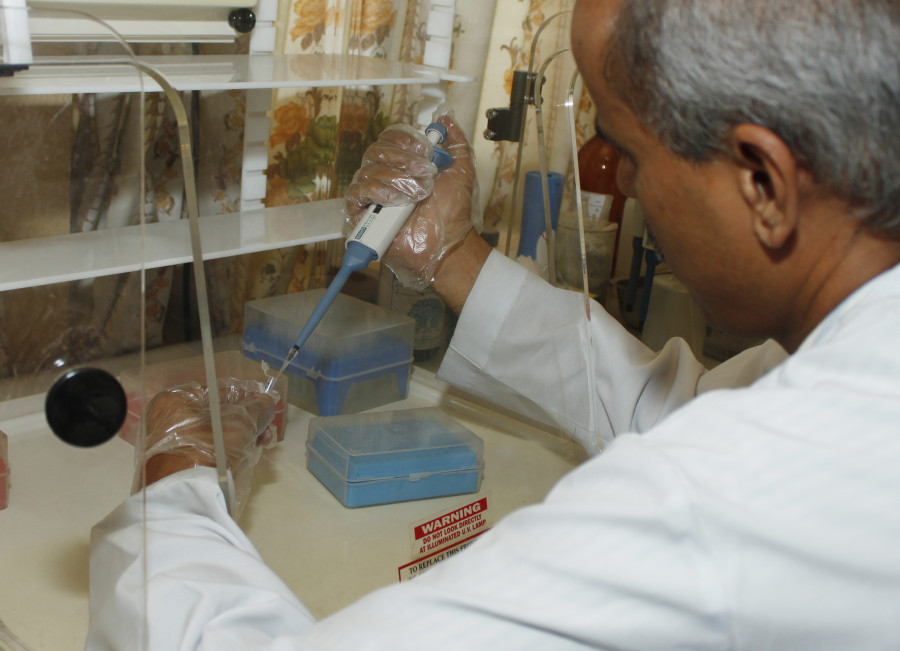Science & Technology
Nepal Police’s central lab needs upgrading: Forensic experts
With the lapses in DNA tests surfacing after the Nirmala Pant case, experts say faults may continue unless the central lab is equipped with infrastructure and qualified staff.
Nayak Paudel
While questions were being raised over the authenticity of the DNA sample extracted from the vaginal swab of 13-year-old Nirmala Pant, who was raped and murdered on July 26 last year, the National Human Rights Commission has pointed out in its report serious lapses by the Central Police Forensic Science Laboratory.
When the vaginal swab of Nirmala was sent to the central police laboratory, the officers should have differentiated the female swab and male DNA before testing but they conducted the tests without differentiating the two, the watchdog’s report says.
At a time when the central lab itself is found to have serious lapses in testing DNA, a major evidence to identify the culprit of rape case, two new labs of Nepal Police have been established outside the Valley.
In a bid to extend its forensic service outside Kathmandu for aiding investigations, the labs have been established in Dharan and Nepalgunj.
While the laboraties have yet to come into operation fully, forensic experts have suggested that the law enforcement agency focus on upgrading its central laboratory in terms of equipment and trained staff in order to mitigate the lapses like in the Nirmala rape and murder case.
The report further states that the lab only conducted Y-STR test, used to establish genealogical connections, over the DNA sample rather than conducting Autosomal STR, which is conducted to identify a particular individual.
According to forensic experts, it was due to inexperience and untrained manpower in the police lab that the DNA matching could not give a correct result and help identify the perpetrator.
“There are no forensic experts in the police lab. The lab lacks equipment and infrastructure. Forensics in crime investigation is a highly sensitive sector. However, it has been neglected by all the authorities concerned for a long time,” Dr Harihar Wasti, forensic expert at the Tribhuvan University Teaching Hospital, told the Post.
“There is difference between forensic experts and trained forensic examiners, who currently operate the police lab,” said Wasti.
Responding to the query regarding no forensic expert in the lab, Nepal Police officials said they have a trained forensic officer for the task.
“The lab officers are trained for the forensic tests we perform,” Deputy Inspector General Bishwaraj Pokharel, spokesperson for Nepal Police, told the Post.
Meanwhile, experts suggest that unless police can ensure their central lab provides proper analysis, testing and results, there are few chances the new labs’ result will be accepted by the general public in any case.
“It is a good step to expand forensic service outside the Valley but at a time when people are not in a stage of accepting the reports of the central police laboratory itself, there are few chances that the tests and reports of the new ones will be accepted,” said Wasti, who was also a member of the watchdog’s committee to probe the Nirmala case.
Experts say the lapses that surfaced after the Nirmala rape case show they might have been continuing for a long time.
In the Godamchaur rape case of November 2017, the DNA of the perpetrators had not matched with the sample collected from the victim as per the test by the central police laboratory. However, the perpetrators were later sent to 10 years in jail on March 1 citing the victim’s statement as major evidence.
“In the Godamchaur rape case, the DNA of perpetrators did not match with the one collected from the victim. There might have been lapses then as well,” Dr Jiwan Rijal, a forensic expert, told the Post.
“It was the Nirmala case which showed the lapses. If the police lab is not upgraded with the required infrastructure and manpower, such lapses will continue for long,” said Rijal, who is also a former executive director at the National Forensic Science Laboratory. “Nepal Police started DNA testing at once without enough infrastructure and experts. They should not continue as they started.”
Experts say that the lapses are not only limited to the lab but it can occur from the time of evidence collection to its preservation as well.
“The result of evidence testing is accurate only if the evidence is collected and preserved properly. But in case of police, there are lapses from evidence collection to its testing in the lab,” said Rijal. “Police and government should learn from the Nirmala and Godamchaur case.”
According to Nepal Police officials, they are undertaking the process to upgrade its central lab in different phases along with the newly established ones.
“The central lab is not as equipped as it needs to be but we are upgrading it phase-wise,” said Pokharel, the police spokesperson. “The lab in Nepalgunj is yet to start operating and that in Dharan has started operating in toxicology. The two labs will also be upgraded in phases.”




 9.88°C Kathmandu
9.88°C Kathmandu















